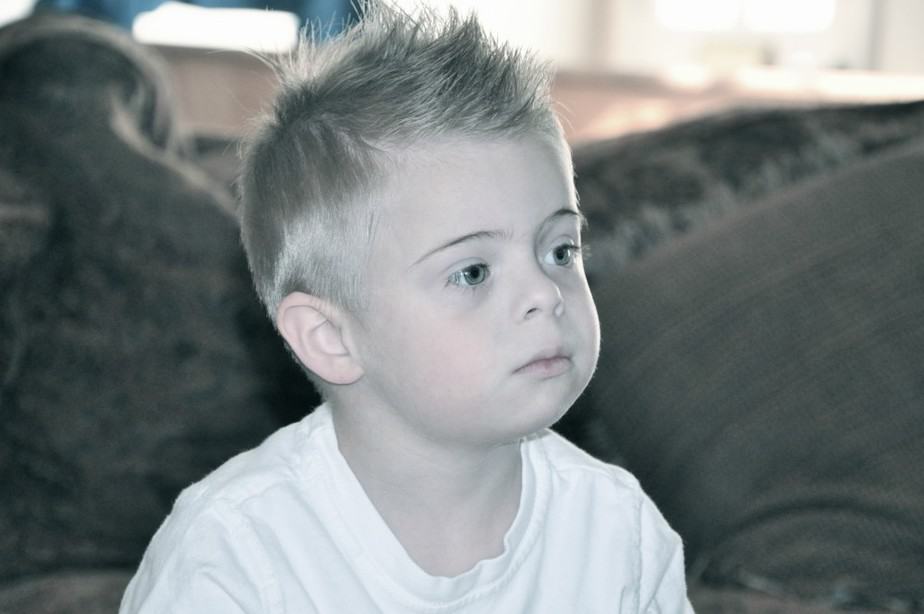Also known as Trisomy 21, Down Syndrome (DS or DNS) is a genetic disorder in which a child’s physical and mental development is abnormal. It occurs to a baby before birth and the baby has some certain features like a short neck, a flat face and some degree of intellectual disability. It is a lifelong condition and a baby with Down Syndrome cannot be treated permanently. He/she may have a better life based on the severity of the problem and the medical support he/she receives throughout their life.
The causes of Down Syndrome:
A child’s chromosomes cause Down Syndrome. In general, a person has 46 chromosomes, 23 pairs. One copy of chromosomes comes from mother’s egg and another copy from father’s sperm. An error occurs at the time of conception and three chromosomes come to the cell instead of two. As a result, a child with this genetic disorder has 47 chromosomes. The presence of this extra one chromosome alters the way in which a baby’s brain and body develop.
The risk factors
You have a higher risk of having a child with Down Syndrome if:
- You had a bay with Down Syndrome
- You (mother) is older at the time of getting pregnant. Avoid having a baby without going through genetic counselling if you are older than 35 years
- You have a son/daughter with Down Syndrome
The signs and symptoms of Down Syndrome
Most of the children with this genetic disorder have
- Facial features like small ears, a flat face, a small mouth and slanting eyes
- A small head
- The tongue seems to be larger for the mouth
- Hands are wide with short fingers
- Short legs, a short neck and short arms
- Loose joints and low muscle tone. In later childhood, low muscle tone gets improvement
- Intellectual disability. It means the baby behaves like a one-year child even if he/she is of more than 5 years
- Obesity occurs later on. There is a speech delay
- Many babies born with Down Syndrome have intestine, heart, breathing and ear problems. The baby may have hearing loss or respiratory infections later in life. Most of these problems can be treated.
Diagnosis of Down Syndrome
In general, Down Syndrome is diagnosed when the baby is in the uterus. In the first trimester, blood tests and ultrasound is done. If the screening tests show potentiality of Down Syndrome, the specific tests are considered. The specific tests are as follows:
- Amniocentesis
- Chorionic villus sampling
These tests show if your baby has Down Syndrome. After the birth, the baby is diagnosed by physical appearance and blood tests is done to analysis chromosomes so that Down Syndrome can be confirmed.
Treatment for Down Syndrome
There is no permanent treatment available for the baby with Down Syndrome. Proper care and medical support can improve only the quality of life. The baby with this genetic disorder takes time to crawl, sit, walk and talk. With a team approach to care, occupational therapists, physical therapists and speech therapists help your baby improve motor, social and language skills. Health conditions associated with Down Syndrome can be treated and may require surgeries and continuous medical support.
The potential complications associated with Down Syndrome
- Congenital heart diseases
- Abnormalities of the gastrointestinal tract
- Pneumonia
- Celiac disease
- Lung problems
- Eye problems
- Blindness
- Sleep apnea
- Deafness
- And many more
Lifespan
The baby with Down Syndrome has a higher risk of death in the first year due to many physical complications associated with chromosomal abnormalities. If the baby completes the first year and receives utmost care along with medical support, he/she can live up to 50 years.
Is it possible to prevent Down Syndrome?
No, it is not possible, as it is not an illness or a disease. However, you can stop having a baby with Down Syndrome with screening tests (blood test and ultrasound) of the mother in the first trimester. You have a higher risk of having a child with this genetic disorder if you have or had a baby with Down Syndrome. Before planning to have a baby again, both of you (husband and wife) must go through genetic counselling. Leave the plan of being parents if the doctor does not allow you for the same.
